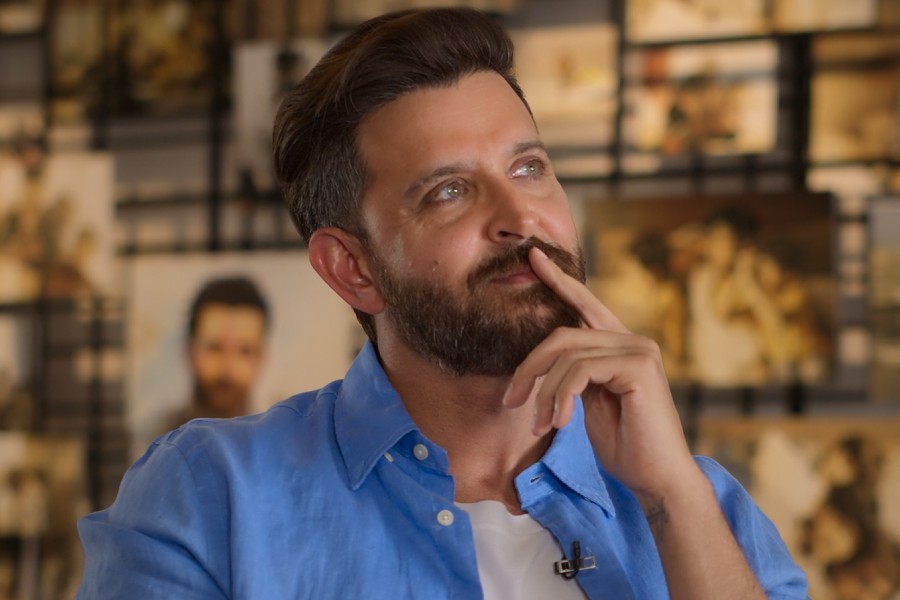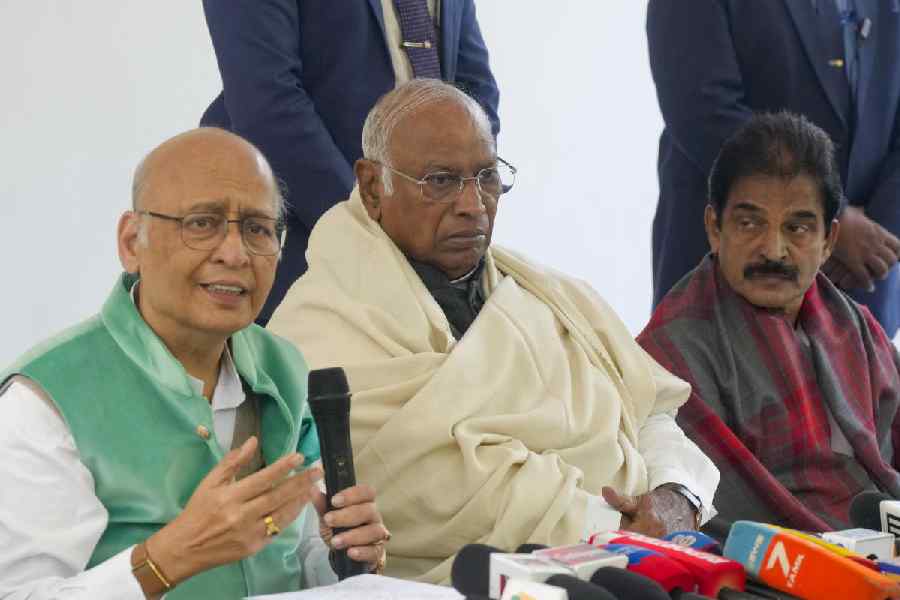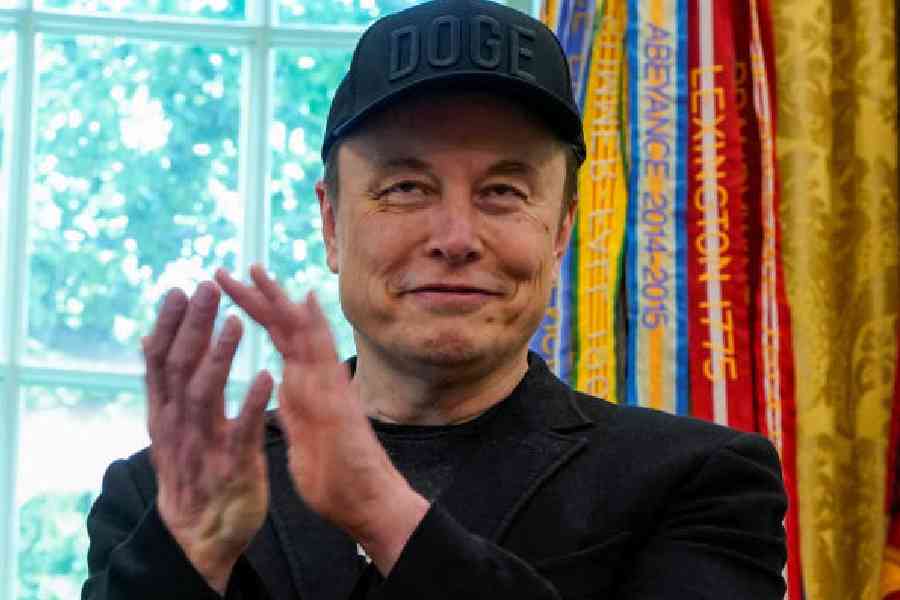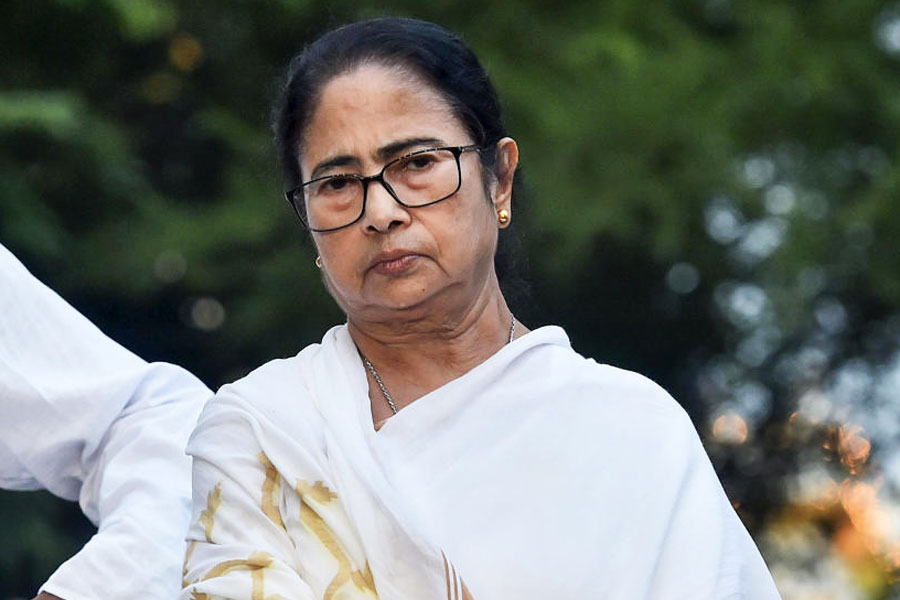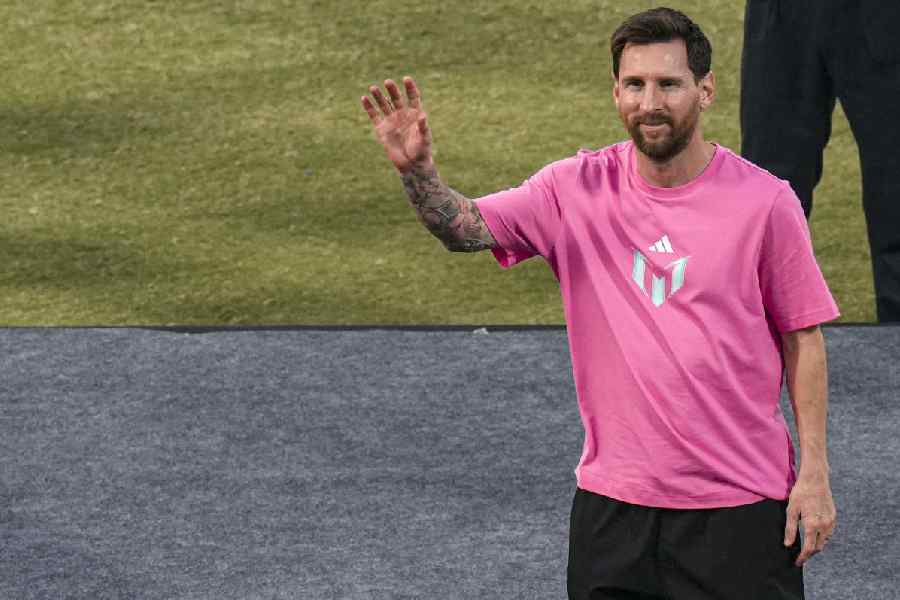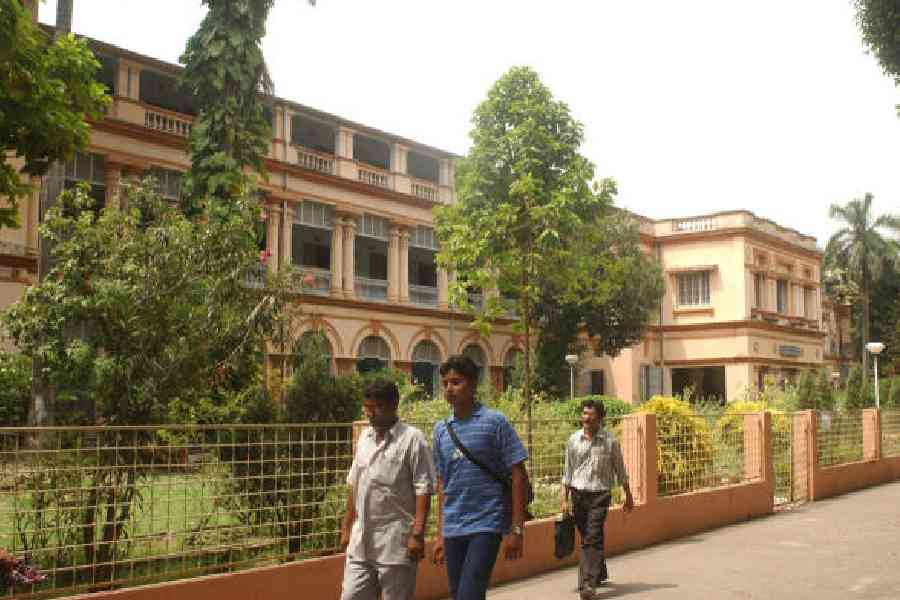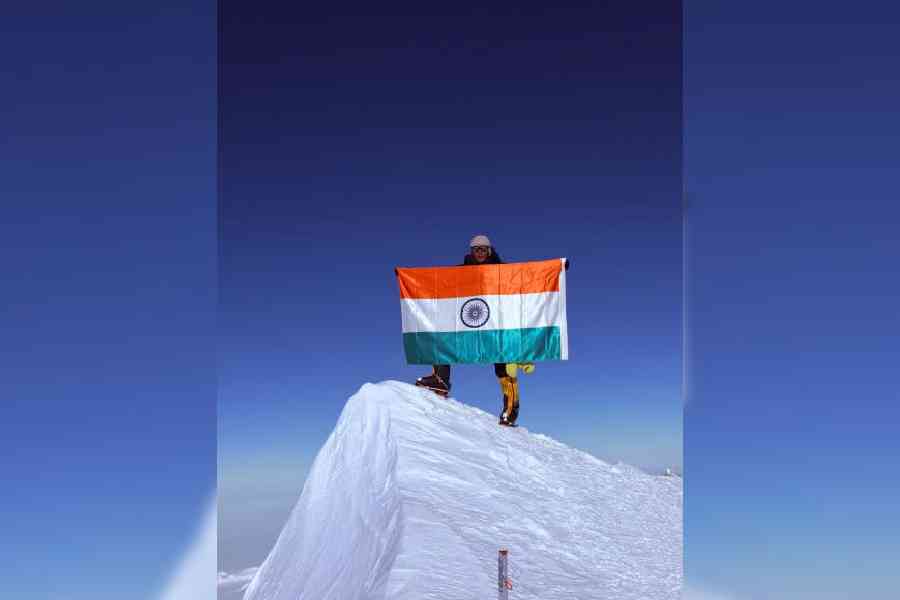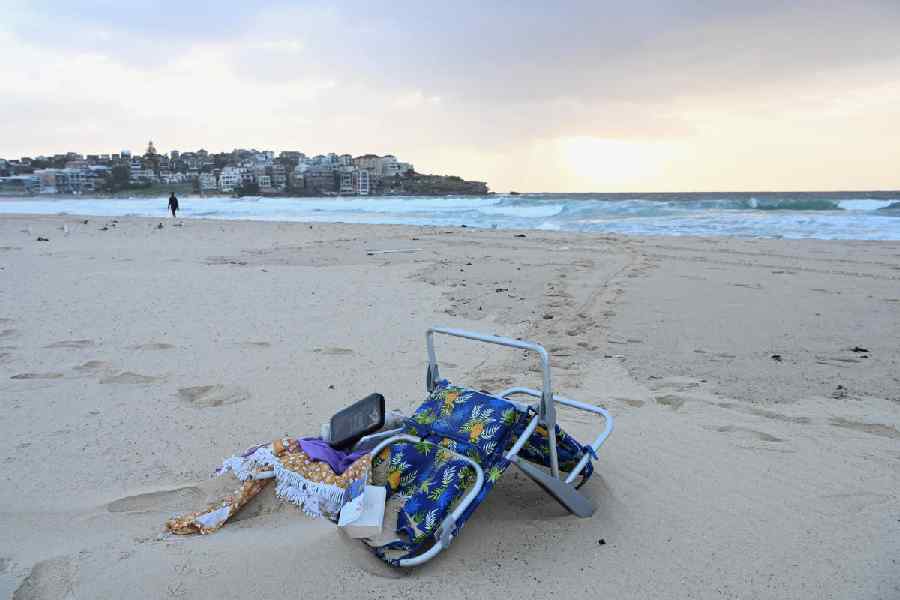The story of the Chopras started it all — this flood of documentaries on Bollywood families and legends. Fortunately or unfortunately, Netflix’s The Romantics, on the legacy of Yash Chopra, also set a benchmark in storytelling, in curation, in cinematography, in the choice of film personalities, and a breathtaking surprise of the elusive Aditya Chopra speaking on camera for the first time. It is a hard act to follow.
The Salim-Javed story, Prime Video’s Angry Young Men, which followed soon after, was good in parts. The duo’s famous dialogues, their stardom reflecting larger than life on billboards — an unheard of phenomenon previously and since — and the delicious excerpts from Amitabh Bachchan films which made him the icon he is today.
And then came The Roshans, a four-chapter documentary on Netflix which dropped in January. Those of us from GenX who grew up with Rakesh Roshan acting in and directing films, and who watched Hrithik Roshan the star being born, we knew of their struggles and stories. But I, for one, did not know much about Roshan senior and Rajesh Roshan – which is why I found the first two chapters of this documentary delightful. Equally delightful when a ‘sitaron ki mehfil’ speaks of the Roshans — from Asha Bhonsle, Pyarelaalji, Anandji, the late Ameen Sayani, Javed Akhtar, Shah Rukh Khan, Madhuri Dixit, Anil Kapoor, Sanjay Leela Bhansali, Sonu Nigam, Karan Johar, Ranbir Kapoor and Vicky Kaushal to name just a few. As well as the women of the family.
The first five minutes of the documentary provide us with (new) information that the Roshans are actually the Nagraths who took the first name of Roshan senior as their identity. Roshan Lal Nagrath, born in 1917, in the Punjab of Pakistan, trained under sarod maestro Alauddin Khan and got his first job as an esraj player in 1940 at All India Radio, where he met his (second) wife Ira Moitra.
Ira was a singer on AIR and they moved to Bombay after marriage in 1948. These love stories of yesteryear are fascinating – driven by art, freedom (national and personal) and a burning drive to establish an identity away from class, caste and social norms. Ironically, both their sons had arranged marriages – a trap of success and social conformation perhaps.
The struggles of Roshan senior may not be unique to him but his success was what fairytales are made of. A poll once invited votes for the favourite song ever – and it was Mann re, tu kaahe na dheer dhare, a melody which is a transcendental ode to restless souls. Sung by Mohammed Rafi, it was an inexplicable favourite of my nephew’s, then four years old. Roshan’s Rahein na rahein hum, Zindagi bhar nahin bhulegi woh barsaat ki raat, Laaga chunari mein daag, Dil jo na keh sakaa, Chhupa lo yun dil mein – the list is unending. And who can forget the 15-minute Qawali Yeh hai ishq ishq…, which his wife was afraid would not be successful but continues to stake its place in the sun.
The Roshans is packed with such goodies that it didn’t need the ‘dramatisation’ in Chapter 1; just the voiceover would have been enough, especially little gems like Asha Bhonsle’s commentary interspersed with Nutan singing Nigahein milaane ko jee chahta hai.
Roshan died too young – he was 50 and his sons, still in their teens. Maybe that and Ira’s determination was what pushed the brothers to their glory. Rajesh Roshan burst onto the music scene with a Julie. He was barely 20. While it wasn’t his first composition, it was a new sound which took our world by storm – first crushes were synonymous with Dil kya kare jab kisi ko kise se pyaar ho jaye... After which there was no stopping him.
Our antaksharis are still peppered with Rajesh Roshan’s Chhukar mere mann ko, Jab chhaye mera jadoo, Na bole tum na maine kuchh kaha, Koi roko na, Ho pardesiya, Ik rasta hai zindagi and more recently Ek pal ka jeena and Na tum jaano na hum. And my personal favourite, Chal kahin door nikal jayein, to which Ranbir Kapoor shares a lovely memory of his father, Rishi Kapoor. One of the highlights of the first episode was Roshan playing the Bongo Congo he had used for five years when he interned with Laxmikant Pyarelal and the daphli used for Jhooth bole kaua kaate.
Rakesh Roshan came into his own once he started directing films. It was a little heartbreaking to hear him coming to the realisation that he would never succeed as an actor. He tried his hand at production with him as an actor, which was equally unsuccessful. He then decided to retire as an actor and direct films. He started with Khudgarz, with Jeetendra and the brilliantly cast Shatrughan Sinha. The rest, as they say, is Bollywood history.
Rakesh Roshan’s films were massy, over the top, melodramatic but they hit box-office bullseye. His formula to success was to never tell the same story twice – Khoon Bhari Maang, Koyla, Kishan Kanhaiya and the mother (er, Rakhee) of all blockbusters: Karan Arjun. We often use the (in)famous dialogue ‘Mere Karan Arjun aayenge’ – if dialogues were a meme.
In fact when we went to watch Pathaan two years back, and Salman Khan came to save Shah Rukh Khan, the audience went wild with, ‘Mere Karan Arjun aa gaye!’ Rakesh Roshan’s style of storytelling changed again with Kaho Naa Pyaar Hai, Koi Mil Gaya, Krrish – movies for his son, Hrithik. As Shah Rukh says, Rakesh Roshan’s emotional centre lies in telling the story of the underdog, the story of survival.
Hrithik Roshan – the Greek God, dancing star, actor – erupted into ‘a theatre near us’ with Ek pal ka jeena. Everyone — from SRK to Farhan and Zoya Akhtar, to Sanjay Leela Bhansali, to Abhishek Bachchan — agrees that he is hungry as an actor, so he also gives us a Dhoom 2, an incredible turn in Zindagi Na Milegi Dobara (my personal favourite), Bang Bang, and Guzaarish to name just a few. We all know about his struggles with his physical limitations but as Tiger Shroff says, Hrithik’s discipline is his superpower.
The Roshans are a legacy that will forever light up the industry (terrible but irresistible pun!). Hrithik still has a long way to go and even though he does not wish to burden his sons with the word legacy, who knows?

